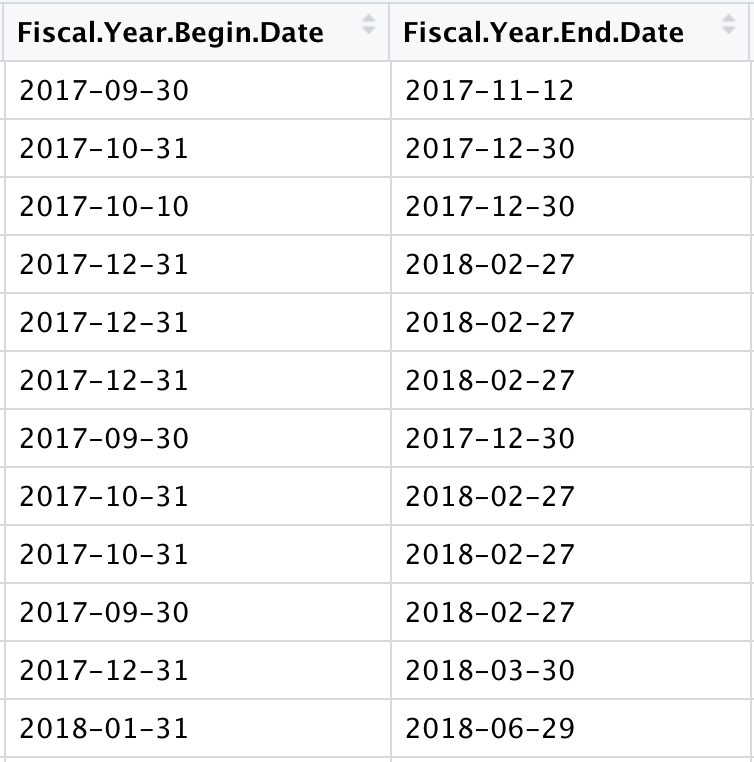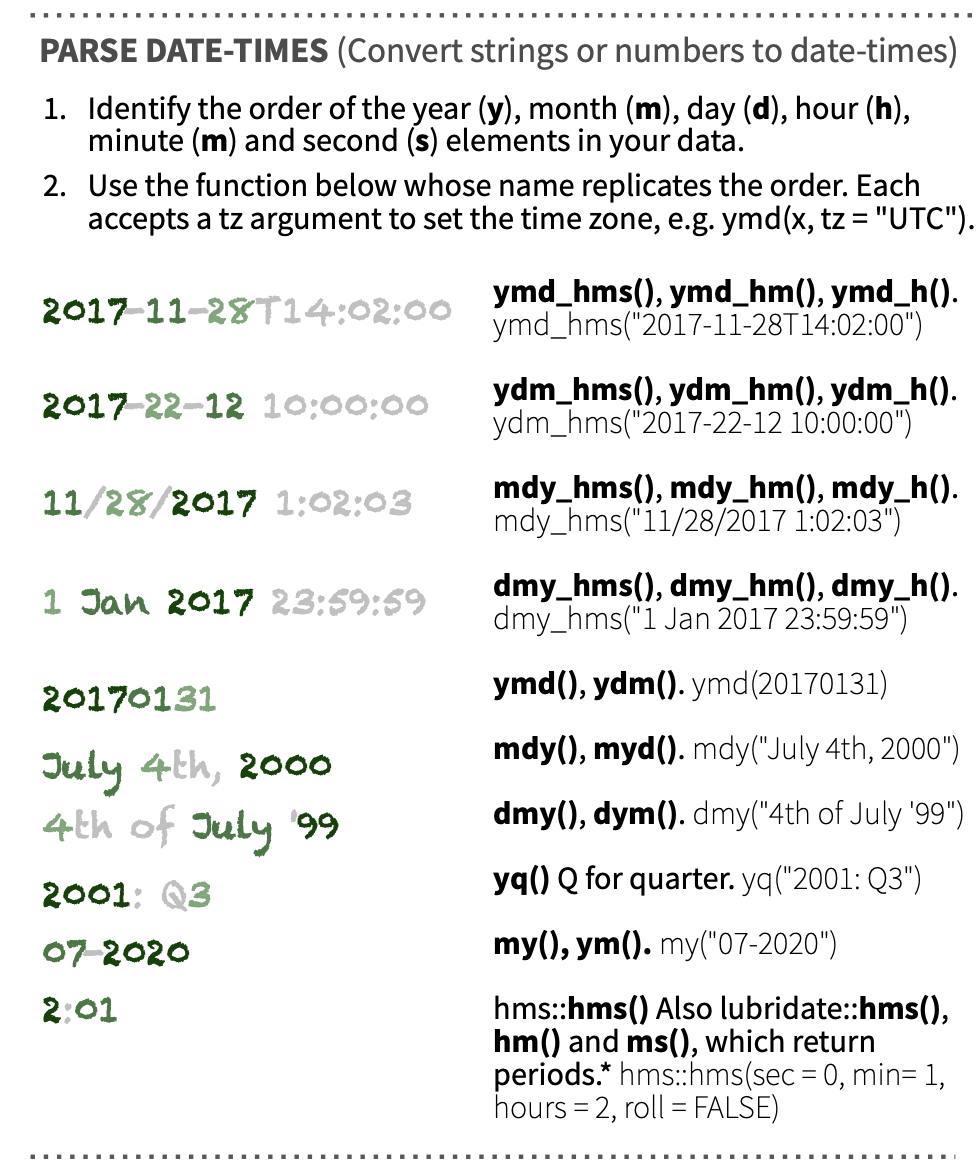Cleaning Data
SDS 192: Introduction to Data Science
Professor Lindsay Poirier
For Today
- Mutating to reformat vectors
- Working with NA columns
- Practice cleaning a dataset
Whenever formatting columns, we will use mutate to overwrite a variable with a new cleaned up variable.
Converting Types
as.character(),as.numeric(),as.logical()all convert a variable from an original type to a new type
Parsing Dates
- Dates can be converted to a date format using the
lubridatepackage- Step 1: Check how dates are formatted
- Step 2: Find corresponding conversion code on
lubridatecheatsheet


Setting Dates
ymd_hms()will take a date formatted as year, month, day, hour, minute, second and convert it to a date time format
Setting NA values
na_if()will take a variable and set specified values toNA
Replacing Strings
str_replace()will take a variable and replace an existing string with a new string
Removing Strings
str_replace()will take a variable and replace an existing string with a new string
Conditionals
case_when()allows us to set values when conditions are met